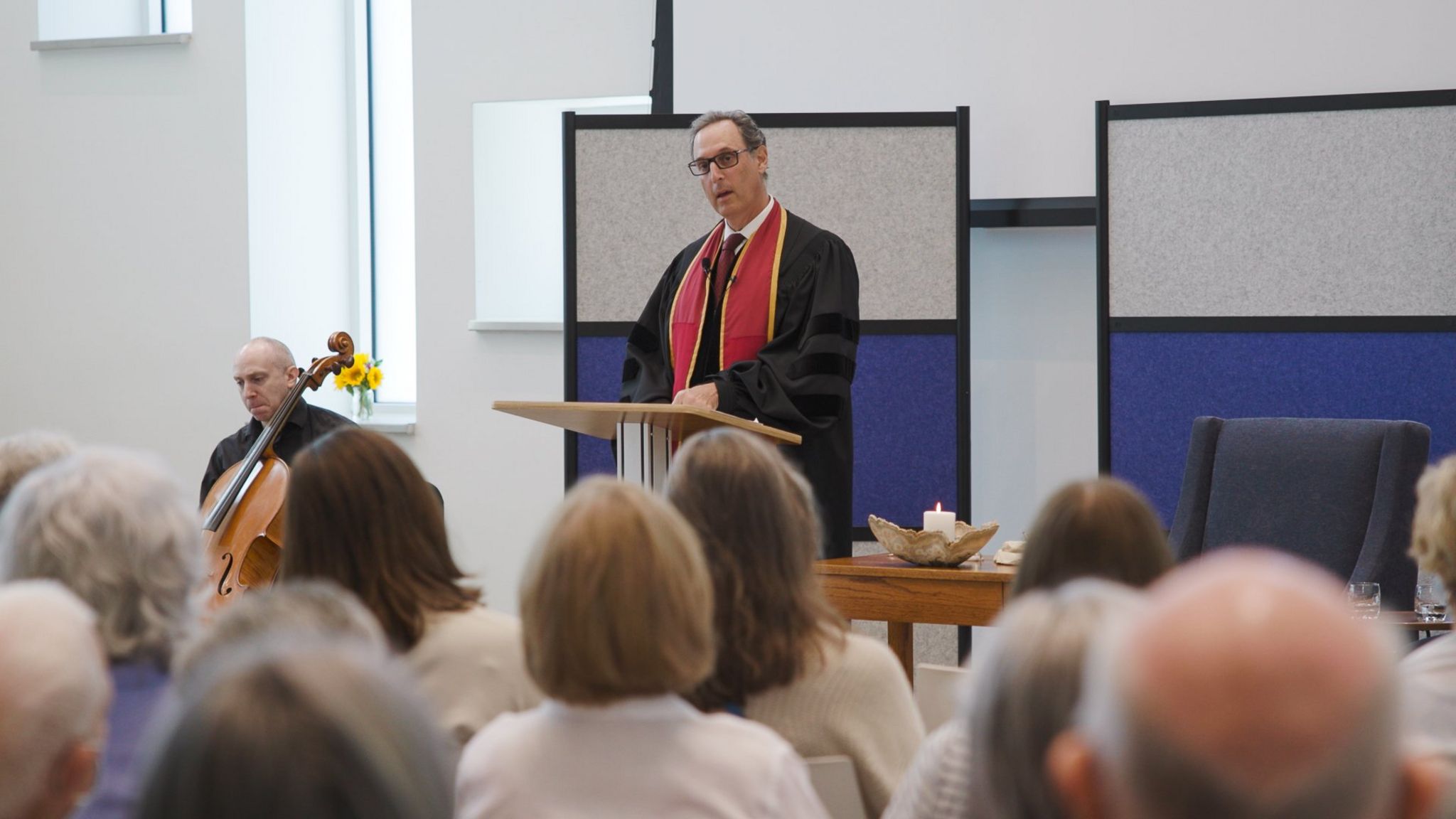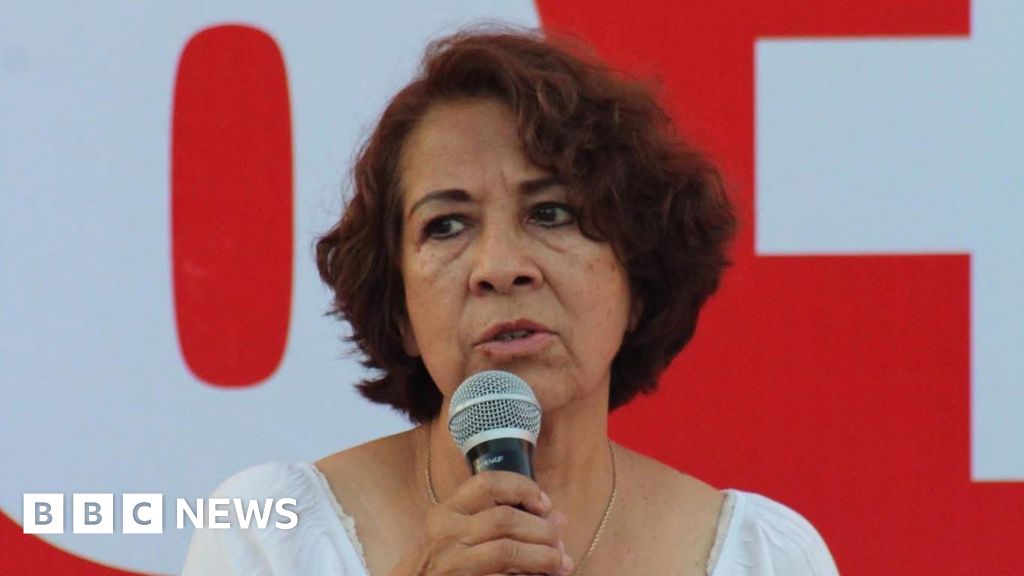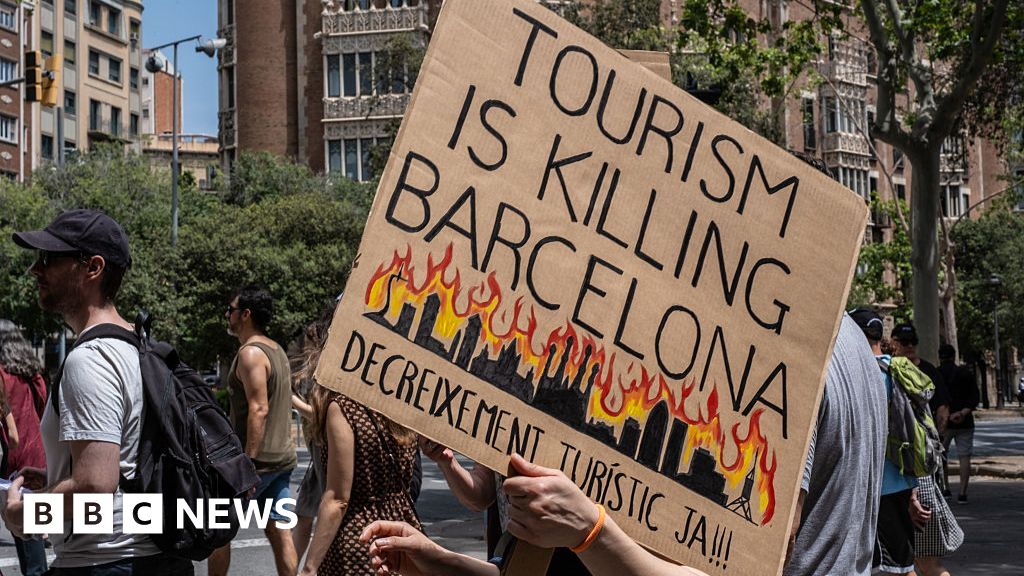ARTICLE AD BOX
By Chelsea Bailey
BBC News, Dallas, Texas
 Image source, Nick Gibson, BBC News
Image source, Nick Gibson, BBC News
Rev Daniel Kanter preaches about abortion access at First Unitarian Church of Dallas in Texas
A Texas church in Dallas, one of the most religious cities in the United States, has become a haven for those seeking abortions. For members, its long history in the fight for reproductive choice brings hope for a post-Roe future.
It was well before dawn in Dallas but a group of women were already seated scrolling through their phones or picking at a free continental breakfast in the classroom where they had been told to gather. Bleary-eyed and yawning, they were waiting to board a flight that would change their lives.
Many were women of colour, all were from different backgrounds. A teenager came with her mom. Another woman drove through the night from Oklahoma.
But they all had one thing in common - each was more than six weeks pregnant and could not legally obtain an abortion in the state of Texas.
They had also all placed their trust in a seemingly unlikely source - volunteers with the First Unitarian Church of Dallas - who would fly them to New Mexico, where they could end their pregnancies.
The tension was palpable as the church's senior pastor, Rev Daniel Kanter, addressed the women assembled.
"God loves you. You have dignity and worth and your life is the priority here," he said. "If you're surprised a person of faith like me is standing in front of you saying that - that's a good thing. But it shouldn't be".
An earthquake Supreme Court decision in the US last week has reversed a 50-year precedent which had said that American women had a constitutional right to an abortion - and many of those who had campaigned for this reversal were prominent Christians.
Yet the issue of abortion and faith is a lot more varied. First Unitarian Church of Dallas, specifically, has a long history fighting for abortion access, having helped bring about the 1973 ruling that had guaranteed the right to the procedure.
That mission has not ended with the reversal of Roe v Wade - and First Unitarian's fresh fight to help women get abortions reveals much about surprising divisions among American Christians over the matter.
Image source, Pew Research Centre
Before abortion was legalised in 1973, people would often turn to faith leaders for help with unintended pregnancies. A network of Protestant and Jewish leaders founded in 1967, the Clergy Consultation Service, once provided counselling and referrals to doctors who would perform the procedure. It's estimated the service helped more than 400,000 people access abortions.
Harder lines emerged in the later decades of the 20th Century after Roe. Today, abortion is seen by many evangelical Christians and Catholics as a clear-cut case of murder, condemned in the Bible. According to a recent survey by the Pew Research Centre, nearly three-quarters (74%) of white evangelical Protestants believe abortion should be illegal in all or most cases.
Within those figures, though, are hidden nuances.
Almost two-thirds of black Protestants and a majority of white protestants who are not evangelical, say the opposite - that the procedure should be legal in all or most cases - as do a majority of Catholics.
The division often comes down to an existential question about when life begins, and a theological debate over how Jesus instructs followers to live their lives. For Albert Mohler Jr, an evangelical Baptist and president of the Southern Baptist Theological Seminary, the Supreme Court's decision to overturn Roe "was absolutely necessary". For Mr Mohler, and thousands of evangelical Christians, the Bible is unequivocal on abortion.
"Every single life is made in God's image and thus is of priceless, infinite worth," he said, adding that Christians who say otherwise differ from him not just theologically, but morally.
"I have to work and pray that that division remains peaceful and insofar as it's possible, respectful," he said.
But for pro-choice Christians, it is supporting reproductive choice that's in keeping with the example Jesus set, according to Katey Zeh, a Baptist minister and CEO of the Religious Coalition for Reproductive Choice.
Christ "showed up for people in their vulnerable moments, especially for people who were impacted by systemic oppression and those who were pushed to the margins," she said. "I see Him being a clinic escort, being there inside to hold their hands."
The Unitarian Universalists have long been in the pro-choice camp.
"Before Roe, the clergy of my church were driving women to the Gulf of Mexico to get on boats to go out in international waters and have legal and safe abortion," Rev Kanter said.
The denomination as a whole has roots in Protestant Christianity, but now incorporates traditions from other faiths. Many Unitarian Universalists today still identify as Christian, however.
Image source, Chelsea Bailey, BBC News
Image caption,A sign outside an abortion clinic in Dallas
It was January 1970 when the women's group of the First Unitarian Church of Dallas's women's group met to discuss an issue dividing the nation then as now: abortion.
According to minutes seen by the BBC, they were joined by a young lawyer named Linda Coffee, who along with her colleague Sarah Weddington, was determined to file a lawsuit against the state of Texas over its restrictions to abortion access.
Ann*, who was seated among the women gathered that day, said that - much like the country - opinions about abortion among the women in the group at the time varied greatly.
"But the more we learned about how difficult it actually was [to get an abortion]... we just got radicalised," the now-92-year-old said.
As none of the women were pregnant at the time, none could serve as a plaintiff, so they helped by submitting a key legal brief in support of reproductive choice when Coffee and Weddington did go to court with the Roe v Wade case.
Watch: Lawyer Sarah Weddington was just 26 years old when she argued Roe v Wade
Today, that legacy continues and there are reminders of it throughout the church.
Signs in the lobby inform visitors that the church provides Plan B, an emergency contraceptive pill, to anyone in need. There's also information about Our Whole Lives, the comprehensive sex education course that Unitarian Universalists offer from kindergarten through to adulthood. The programme emphasises healthy relationships, consent and communication, sex, and reproductive health access.
Many of the church's members shared their own stories with the BBC. There's Adryelle, who nearly died giving birth to her first child and said she could not imagine being forced to continue a pregnancy. Or Peg, who said she felt lucky because before abortions were legal in the United States, she had been able to have a safe and legal abortion while traveling in the United Kingdom.
Rev Kanter said that history was front of mind when he started the New Mexico abortion access network. The programme, which began when Texas passed one of the most restrictive abortion laws in the country last year, is funded through donations from pro-choice people of different faith backgrounds across the country. To qualify for the network's assistance, the person seeking an abortion must be below the poverty line - but that's where the requirements end.
The church says its role is simply to facilitate access, not to encourage people to have - or not have - the procedure. That is a personal choice, Rev Kanter said.
On a recent Sunday, he shared from the pulpit the story of his own experience with abortion.
He spoke openly of falling in love, sex, youthful indiscretion, and ultimately a difficult decision with a former partner to end the pregnancy. Part of his decision to become a minister was to heal from the experience, he said.
Unbeknownst to many, the church hired plain-clothes officers who were seated among the congregation that Sunday, in acknowledgement of how volatile the issue has become.
With Roe v Wade overturned, more and more states will pass abortion bans. Rev Kanter said he expects to increase the frequency of the trips from Texas to New Mexico.
Image source, Chelsea Bailey, BBC News
Image caption,Rev Daniel Kanter assists a patient using the access network to get an abortion in New Mexico
On the night Roe v Wade was overturned, the church gathered again to join hands and pray for strength to continue their mission to help abortion-seekers.
"Hold this grief, but not too long," he told his congregants. "We will still do what we can to help women get safe and legal abortions."

 2 years ago
91
2 years ago
91








 English (US) ·
English (US) ·